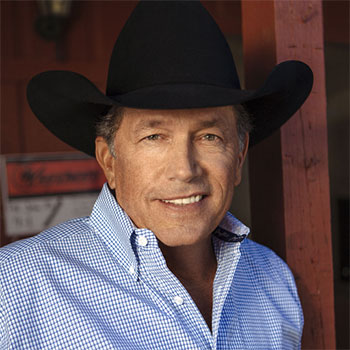
Alfred Hitchcock
|
|
Happy BirthdayAugust 13, 1899 |
|
|
Birthplace
England |
|
|
Age
80 |
|
|
Birth Sign
Leo |
In the Beginning
Alfred Joseph Hitchcock was born on August 13, 1899, in Essex, England. Hitchcock was raised in a far from idyllic manner and described his childhood as lonely and sheltered – in part due to his obesity. He was scarred for life as a child when his father sent him to the police station with a note asking the officer to lock him away for five minutes for behaving badly. Hitchcock, from that point on, had an irrational fear of policemen. The harsh treatment would also stick in his mind throughout his lifetime, as we would come to see as themes in his films. Shortly after his father died and at age 15, Hitchcock attempted to enter the military service but was ultimately rejected because of his weight. His creative future soon followed.
Career Accomplishments
Hitchcock dabbled with writing initially at the Henley Telegraph, and his first article was about a young woman who imagines that she's being assaulted, though a twist reveals she was only hallucinating at the dentist's office. A few years and many articles later, Hitchcock became enthralled with photography and started working in film production. He rose from title designer to film director, from screenwriter to art director and assistant director in a matter of years. By 1922, he began directing his own projects, the first of which was called “Number 13”. It wasn't until his first thriller, called, “The Lodger: A Story of the London Fog” in 1927 that Hitchcock began to make a name for himself. In 1929, Hitchcock's tenth film in progress was converted to sound, and thus began Hitchcock's string of infamous “talkies”. In 1939, Hitchcock signed a seven-year contract with a Hollywood producer and really etched a name for himself internationally as a brilliant suspense and thriller film director with movies like “Rebecca”, which won an Academy Award for Best Picture of 1940. Hitchcock moved on to sign with Universal a number of years later and made two films with them during the 1940s. It was in 1943 that Hitchcock directed his personal favorite film – Shadow of Doubt. During World War II, Hitchcock made short propaganda films and served as a “treatment advisor” in a documentary on the Holocaust.
Most Known For
Hitchcock hit his peak in the 1950s when he filmed “Stage Fright” in England. He cast some of the decades most popular actors for this film, including Jane Wyman, Marlene Dietrich, Michael Wilding, Richard Todd and Alastair Sim. Hitchcock's film “Vertigo” was ironically was not appreciated in its time. Back then, it met with negative reviews, but today it is considered a classic and “one of the best films ever”. Without question, Hitchcock's most famous work is 1960's “Psycho”. Such scenes in “Psycho” are well known and replicated to this day: the violence of the shower scene, the early death of the protagonist, and the gruesome and disturbing horror presented throughout.
Where Is He Now?
Hitchcock died at the age of 80 at his home in Bel Air. He passed early in the morning of renal failure and left behind his wife and daughter. His body was cremated and his remains were scattered over the Pacific Ocean on May 10 of 1980.
Alfred Hitchcock Net Worth
| Net Worth | |
|---|---|
| Net Worth in 2021 | $200 Million |
| Annual Earnings | N/A |
| Assets | N/A |
Alfred Hitchcock Profile
| Basic Info | |
|---|---|
| Full Real Name | Alfred Hitchcock |
| Date of Birth |
August 13, 1899 |
| Age | 80 |
| Died | April 29, 1980 |
| Birthday | 13-Aug |
| Yers of Birth | 1899 |
| Nick Name | N/A |
| Family Name | Hitchcock |
| Birth Place | London, England |
| Residence | N/A |
| Gender | Male |
| Profession | Director |
| Country | England |
| Nationality | American, British |
| Ethnicity | English |
| Religion | Catholic |
| Personal Life | |
|---|---|
| Marital Status | Married |
| Partner | N/A |
| Spouse | Alma Reville (1926-1980) |
| No Of Children | 1 |
| Son(s) | N/A |
| Daughter(s) | Patricia Hitchcock |
| Physical Stats | |
|---|---|
| Height (in feets) | 5 Feet 7 inches |
| Height (in meters) | 1.7 m |
| Weight (in kgs) | 85 KG |
| Weight (in lbs) | 187 lbs |
| Bust Waist Hip | N/A |
| Measurements | N/A |
| Hair Color | Grey |
| Eye Color | Brown |
| Shoe Size | N/A |
| Tatoo | N/A |
| Family | |
|---|---|
| Father | William Hitchcock |
| Mother | Emma Jane Hitchcock |
| Brother(s) | William Hitchcock |
| Sister(s) | Eileen Hitchcock |
| Garndfather | N/A |
| Grandmother | N/A |
| Signs | |
|---|---|
| Sun Sign | Leo |
| Star Sign | Leo |
| Birth Sign Duality | Assertive |
| Birth Sign Modality | Fixed Fire |
| Education | |
|---|---|
| Highest Qulification | N/A |
| University | St Ignatius’ College |
| College | Salesian College Battersea |
| High School | N/A |







